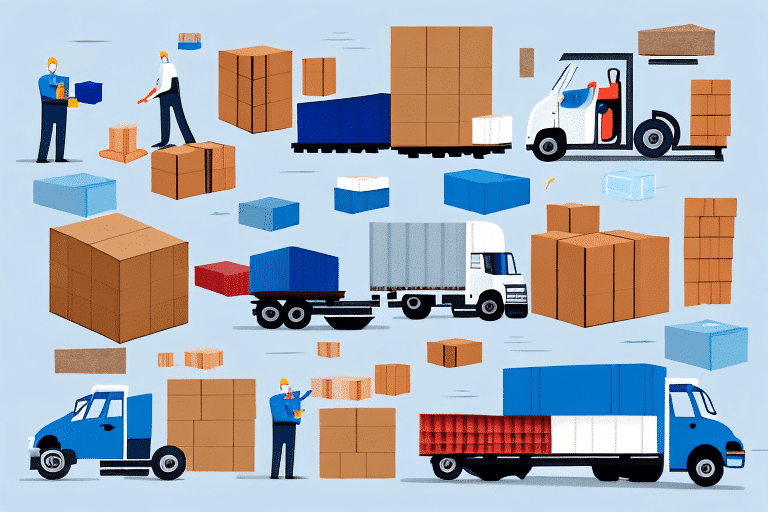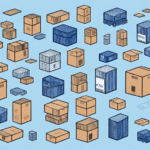The Role of 3PLs in Growing Your Ecommerce Business
With the surge in ecommerce activities, outsourcing logistics and supply chain operations to third-party logistics providers (3PLs) has become increasingly prevalent. According to Statista, global retail ecommerce sales reached approximately $5.7 trillion in 2022 and are projected to grow further. 3PL companies offer a comprehensive range of services, including warehousing, order fulfillment, shipping, and delivery. But what exactly are 3PLs, and why are they vital for ecommerce businesses aiming to scale and expand?
Understanding 3PLs and Their Importance in Ecommerce
What Are 3PLs?
Third-party logistics providers (3PLs) are specialized companies that manage outsourced logistics and supply chain activities for businesses. They oversee the entire process of moving products from manufacturers to end customers, encompassing warehousing, order processing, and shipping. By handling these logistical tasks, 3PLs enable businesses to concentrate on core functions such as marketing, product development, and customer engagement.
Why Do 3PLs Matter?
The significance of 3PLs for ecommerce businesses lies in their ability to streamline operations and enhance efficiency. As businesses grow, managing logistics internally becomes increasingly complex and resource-intensive. 3PLs bring specialized expertise and scalable resources, allowing businesses to adapt to market demands without substantial investments in infrastructure or personnel. This partnership fosters flexibility and scalability, essential attributes in the fast-paced ecommerce environment.
Benefits of Partnering with a 3PL
Cost Savings and Efficiency
Outsourcing logistics to a 3PL can lead to significant cost reductions. By leveraging their established networks of carriers and warehouses, 3PLs negotiate better rates for shipping and storage, which individual businesses might find challenging to secure independently. Additionally, 3PLs help avoid costly mistakes such as overstocking or understocking inventory, which can result in lost sales and wasted resources.
Enhanced Scalability
3PLs provide the flexibility to scale operations up or down based on business needs. Whether it's managing seasonal sales spikes or supporting international expansion, 3PLs can adjust their services accordingly, ensuring that businesses remain agile and responsive to market changes.
Access to Expertise and Advanced Technology
3PLs possess specialized knowledge in logistics and supply chain management, along with access to advanced technologies and tools. This expertise enables businesses to optimize their supply chain operations, improve order accuracy, and reduce delivery times, ultimately enhancing customer satisfaction.
Choosing the Right 3PL Partner
Key Factors to Consider
- Industry Experience: Select a 3PL with a proven track record in your specific industry to ensure they understand your unique logistics requirements.
- Service Offerings: Ensure the 3PL provides the necessary services such as warehousing, fulfillment, shipping, and any specialized services relevant to your business.
- Technology Integration: Opt for a 3PL that utilizes advanced technology for real-time inventory and order tracking, enhancing transparency and coordination.
- Geographic Locations: Consider the locations of the 3PL’s warehouses and distribution centers to optimize shipping times and costs.
- Pricing Structure: Evaluate the 3PL’s pricing models to ensure they align with your budget and offer transparent, scalable pricing options.
Evaluating Potential 3PLs
When assessing potential 3PL partners, examine their reputation, client testimonials, and case studies. Conducting site visits and requesting detailed proposals can also provide insights into their operational capabilities and cultural fit with your business.
Outsourcing Fulfillment: Pros and Cons
Advantages of Outsourcing Fulfillment
- Cost Efficiency: Reduce overhead costs associated with maintaining in-house logistics operations.
- Improved Accuracy: Benefit from the 3PL’s expertise in order processing, leading to fewer errors and returns.
- Faster Delivery: Leverage the 3PL’s established networks to offer expedited shipping options, enhancing customer satisfaction.
Potential Challenges and Mitigation
- Loss of Control: Outsourcing may result in less direct oversight of logistics operations. Mitigate this by establishing clear communication channels and setting detailed service level agreements (SLAs).
- Integration Issues: Integrating your systems with a 3PL’s technology can be complex. Choose a 3PL with compatible systems and offer robust support during the integration process.
- Quality Control: Maintaining consistent quality standards is essential. Work closely with your 3PL to establish and monitor quality benchmarks.
Scaling Your Ecommerce Business with a 3PL
Flexibility and Capacity
3PLs offer the flexibility to adjust logistics operations in response to fluctuating demand. Whether scaling up during peak seasons or expanding into new markets, 3PLs provide the necessary capacity to support your growth ambitions.
Expanding Market Reach
Partnering with a 3PL that has a global network allows ecommerce businesses to enter new geographic markets without the need for substantial upfront investments. This global presence enables faster shipping times and improved customer experiences in diverse regions.
Best Practices for Managing 3PL Partnerships
Establish Clear Communication and SLAs
Clear and consistent communication is the cornerstone of a successful 3PL partnership. Define and document service level agreements (SLAs) that outline expectations for delivery times, order accuracy, and customer service standards.
Leverage Technology Integration
Integrate your ecommerce platform with the 3PL’s systems to enhance visibility and coordination across the supply chain. Real-time data exchange facilitates better inventory management, order tracking, and performance monitoring.
Collaborative Problem-Solving
Work collaboratively with your 3PL to identify areas for improvement and develop solutions to optimize logistics operations. Regular performance reviews and feedback sessions can help address any issues promptly and effectively.
Future Trends in Ecommerce and the Role of 3PLs
Technological Innovations
The integration of artificial intelligence (AI) and machine learning in logistics is transforming the capabilities of 3PLs. These technologies enable predictive analytics for inventory management, optimize route planning, and enhance overall supply chain efficiency.
Sustainability and Environmental Considerations
As consumers become more environmentally conscious, 3PLs are adopting sustainable practices such as eco-friendly packaging, energy-efficient warehouses, and optimized transportation routes to reduce carbon footprints. Partnering with a 3PL that prioritizes sustainability can enhance your brand’s appeal to eco-minded customers.
Case Studies: Successful Ecommerce Partnerships with 3PLs
- Rothy's: This sustainable fashion brand has collaborated with a 3PL to manage its warehousing and order fulfillment since 2014, enabling it to scale from a small startup to a multimillion-dollar enterprise.
- Harry's: The men's grooming brand partnered with a 3PL early on, facilitating its international expansion and ensuring fast shipping times for customers worldwide.
- Stitch Fix: Relying on a 3PL to handle its intricate logistics and supply chain operations, Stitch Fix efficiently delivers millions of personalized styling recommendations each year.
Cost Analysis: How Much Can You Save with a 3PL?
Partnering with a 3PL can lead to substantial cost savings for ecommerce businesses. On average, companies can reduce their logistics and supply chain costs by up to 30% by outsourcing to a 3PL. These savings stem from lower inventory costs, more efficient order processing, and reduced transportation expenses. Additionally, 3PLs help mitigate risks associated with supply chain disruptions, further protecting your bottom line.
Overcoming Common Challenges When Working with a 3PL
Lack of Visibility
Ensure transparency by establishing robust communication channels and utilizing technology that allows real-time tracking of inventory and orders. Regular updates and access to performance dashboards can enhance visibility.
Quality Control Issues
Set clear quality standards and implement regular audits to maintain high service levels. Collaborate with your 3PL to address any discrepancies swiftly and effectively.
Cultural Differences
When partnering with international 3PLs, be mindful of cultural differences that may impact communication and operational processes. Foster a collaborative relationship by understanding and respecting these differences.
Conclusion
Collaborating with a 3PL can be a pivotal strategy for ecommerce businesses seeking to scale and thrive in a competitive marketplace. By outsourcing logistics and supply chain operations to a specialized provider, businesses can achieve cost efficiencies, enhance operational effectiveness, and focus on core growth initiatives. The key to a successful partnership lies in selecting the right 3PL provider and establishing clear communication and expectations from the outset. With the right approach, a 3PL can be instrumental in helping your ecommerce business reach its full potential in the ever-evolving digital landscape.






















